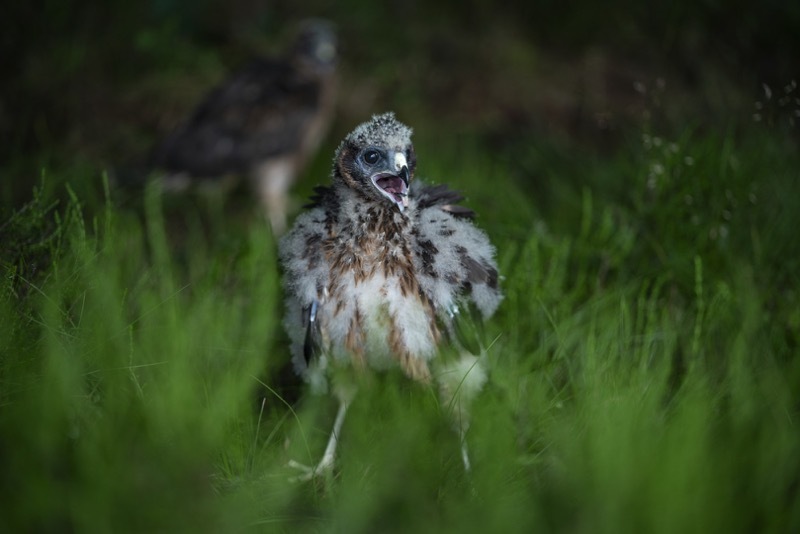A PIONEERING trial set up to boost dwindling numbers of a persecuted bird of prey in Barnsley’s countryside where they once thrived has released 24 chicks this year - almost double last year’s record high of 13.
Hen harrier numbers have shown continuous improvement in recent years, coinciding with the introduction of a government-led recovery plan for the species in 2016 and the availability of the brood management trial two years later to alleviate conflict.
Monitoring has shown that birds reared in previous years in Dunford Bridge and Langsett have gone on to successfully breed in the wild as adults, demonstrating that the scheme has not adversely affected their behaviour or ability to breed.
The two areas have actively participated in the trial with many Moorland Association members hosting other wild nests, further boosting the population.
The trial involved eggs and chicks from wild nests being reared for a few weeks at a specialist bird of prey centre before being transported to pens on grouse moors where they are tagged and monitored before being released into the wild, back into the same part of the country that they came from.
John Holmes, from Natural England, said: “The hen harrier is an iconic species and it is wonderful to see the progress that has been made towards restoring it to our uplands.
“Partnership working is the key to ensuring we protect our rarest species and help nature recover, with the enormous benefits for wildlife and people this brings.”
The first phase of the trial ran from 2018 to 2022, but a licence extension has now been granted by Natural England that runs to 2024.
Survival rates of brood-managed birds since 2019 has been higher than in the wild, as young hen harriers face a number of challenges including attack by other predators, disease, starvation and extreme weather, often suffering a high mortality rate within their first year.
Persecution due to shooting leases - granted on land such as Range Moor - led to a ‘wildlife crisis’, according to campaigners from the RSPB.
It’s been alleged birds of prey have been eradicated by gamekeepers due to their predatory instincts, which leads to a reduction in grouse stock and less attractive sport.
Amanda Anderson, director of the Moorland Association, added: “I am delighted by the remarkable results this season, following on from last year’s record number of chicks fledged.
“The trial has been far more successful than expected and is making a significant contribution to achieving a self-sustaining population of hen harriers in the uplands of England.
“I am grateful to all those involved, including gamekeepers and estates who put in a huge effort to help ensure these birds have the best possible chance of fledging chicks successfully both in temporary captivity and the wild.”


























